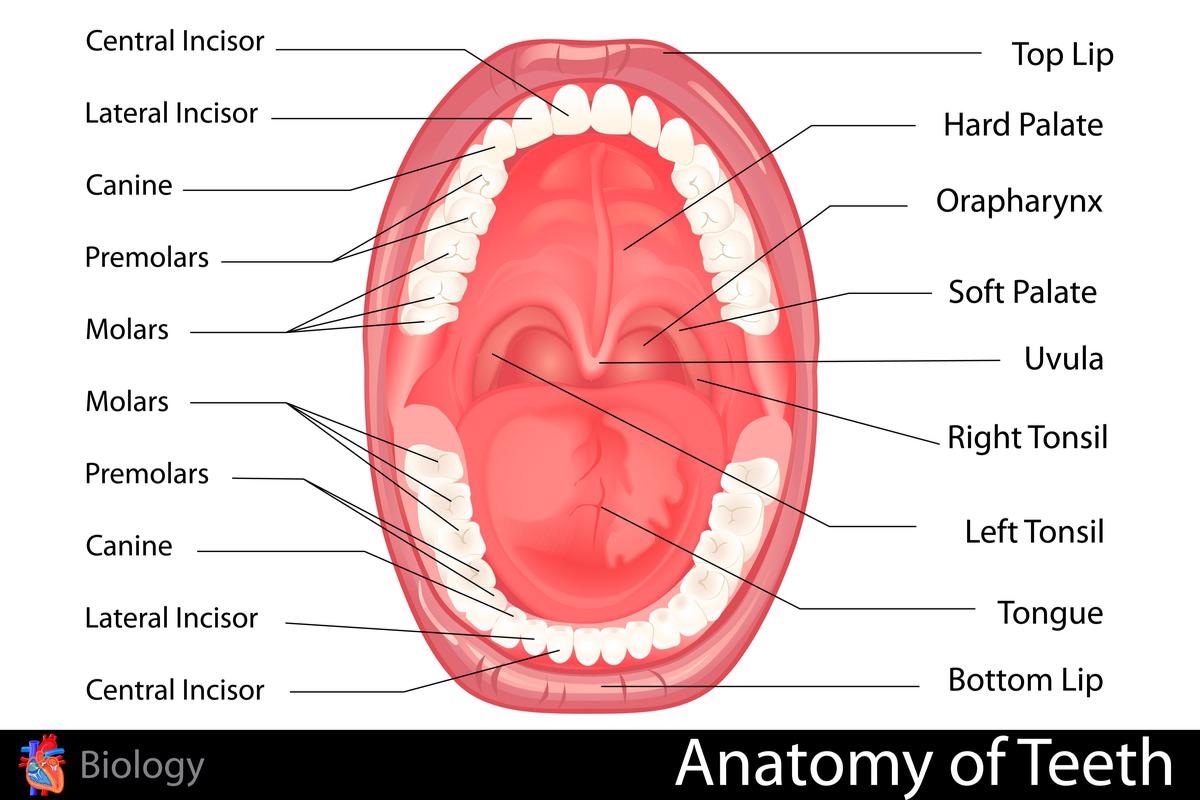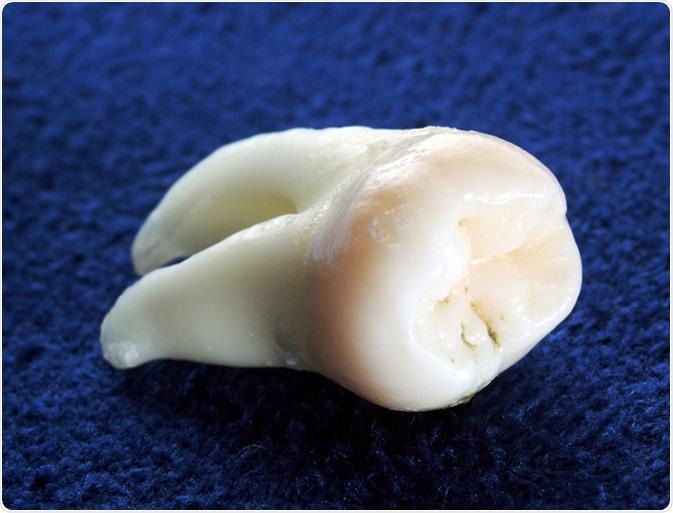Wisdom teeth are also known as third molar teeth. They are located at the back of the upper and lower jaws and are the last teeth to emerge in the oral cavity. They usually erupt between ages 17 and 25; however, in some individuals, wisdom teeth have erupted even in the 40s or 50s. This is the reason why these teeth are called wisdom teeth as they appear during the phase of life called the "age of wisdom."

Image Credit: snapgalleria/Shutterstock.com
Wisdom Teeth Through the Ages
Primitive man consumed more fibrous and rough food. Wisdom teeth aided in masticatory functions and helped in chewing unrefined vegetarian and coarsely cooked meat. With time, diet has become more refined and less coarse. This shift in dietary habits has limited the need to wisdom teeth, which in turn has led to decline in the eruption of the third molar teeth. Owing to the less demand of wisdom teeth in the oral cavity many of the wisdom teeth remain impacted or fail to erupt in the dental arch. Impacted or partially erupted wisdom teeth may also become a source of infection to the nearby structures or adjacent teeth.
What are the Potential Adverse Effects of Wisdom Teeth?
A wisdom tooth may fail to erupt in the oral cavity primarily due to a lack of space. There are various reasons for non-eruption of wisdom teeth such as lack of space in the dental arch, thick bone overlying the wisdom tooth, or inverted wisdom teeth. In most cases, the impacted wisdom teeth do not lead to any problems. However, some individuals may suffer problems such as gum inflammation, an increased risk of tooth decay (due to difficulty in cleaning), and the spread of infection to other teeth.

Image Credit: Theowl84 / Shutterstock
What Problems Can Arise Due to Impacted Third Molar Teeth?
Impacted or partially erupted wisdom teeth can cause various oral health problems. It is imperative to seek dental treatment if the impacted third molar teeth cause problems like:
- Improperly positioned wisdom teeth can cause entrapment of food particles, resulting in bacterial growth which may lead to caries. Improperly positioned teeth can also lead to difficulty in flossing between the wisdom teeth and the adjacent tooth, which further increases periodontal problems and the risk for tooth caries
- Partially erupted wisdom teeth may allow bacteria to pass through the gums, which further increases the chances for pain, infection and swelling in the gums. Affected individuals may face problems like stiffness in the jaws and restricted mouth opening.
- Impacted wisdom teeth acquire space in the dental arch which may lead to crowding of other teeth. Tooth crowding may affect the overall aesthetics and results in crooked appearance of the teeth
- Impacted wisdom teeth increase the chances of cyst formation. This can damage the roots of the adjacent teeth and bone supporting the teeth.
When Does a Wisdom Tooth Require Removal?
It is imperative to seek dental professional if wisdom teeth cause problems in the oral cavity. Below are some signs and symptoms under which wisdom teeth may require removal from the oral cavity:
- Pain in the area surrounding the wisdom teeth
- Infection in the bone or gums surrounding the tooth
- Cysts and tumors which develop due to impacted teeth
- Caries which may occur to partially erupted third molar teeth or adjacent teeth
- Periodontal problems like pockets, gum inflammation and infection
Wisdom teeth may also require removal during the course of orthodontic treatment. Wisdom teeth acquire space in the dental arch thereby making less room for other teeth. Post wisdom teeth removal an orthodontist applies braces to other teeth; which allows proper positioning of the misaligned teeth.
Patient Walk-through of Wisdom Teeth Extraction | Boston Children's Hospital
How Problematic Wisdom Teeth are Treated?
The main treatment approach for impacted or misaligned wisdom teeth and tooth decay is the removal of the tooth. An X-ray of the jaw and teeth helps to identify an impacted or misaligned wisdom tooth.
A dentist needs to be consulted if there is a severe toothache, a swollen face, fever, and difficulty in chewing, swallowing, or opening the mouth fully. Initially, chlorhexidine mouth wash, a soft-bristled toothbrush, and a course of antibiotics may be prescribed. Once the local inflammation has subsided the wisdom tooth is usually removed or extracted.
Further Reading
Last Updated: Jan 17, 2023